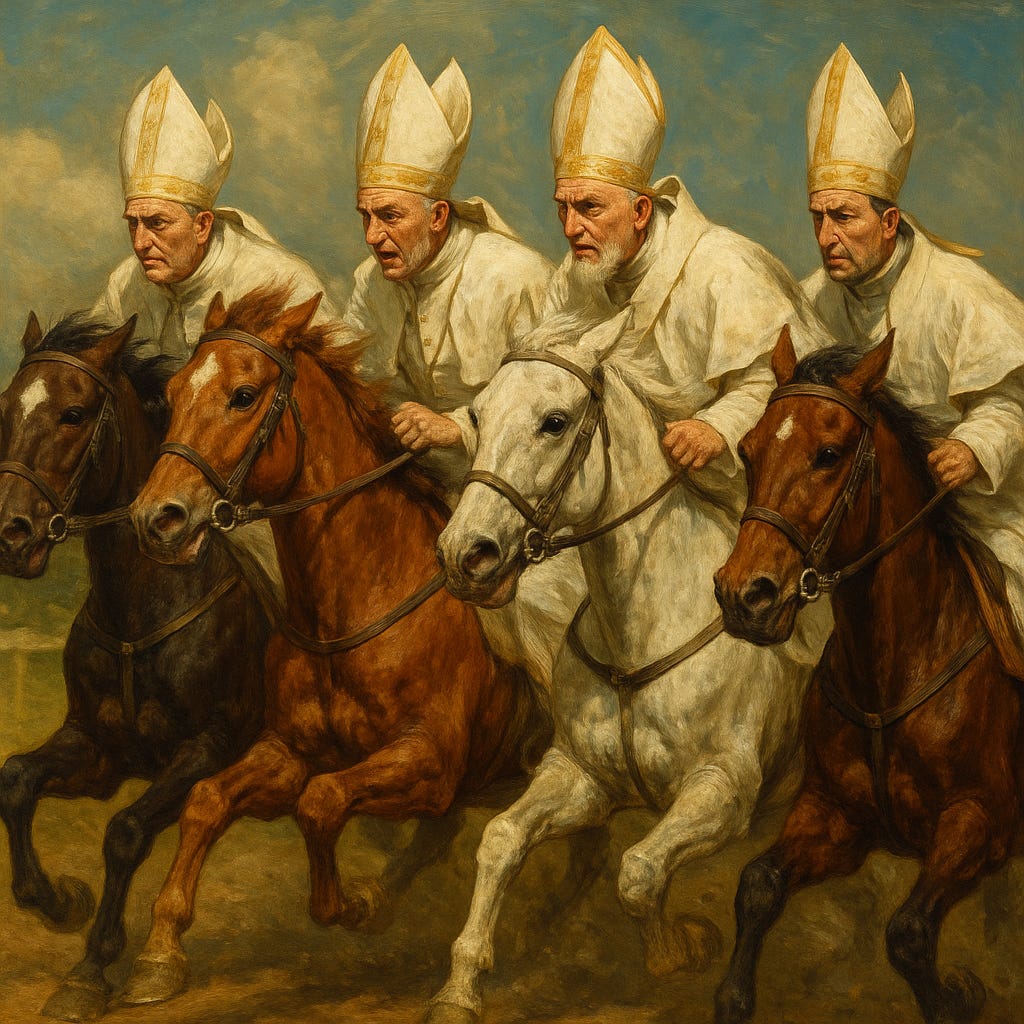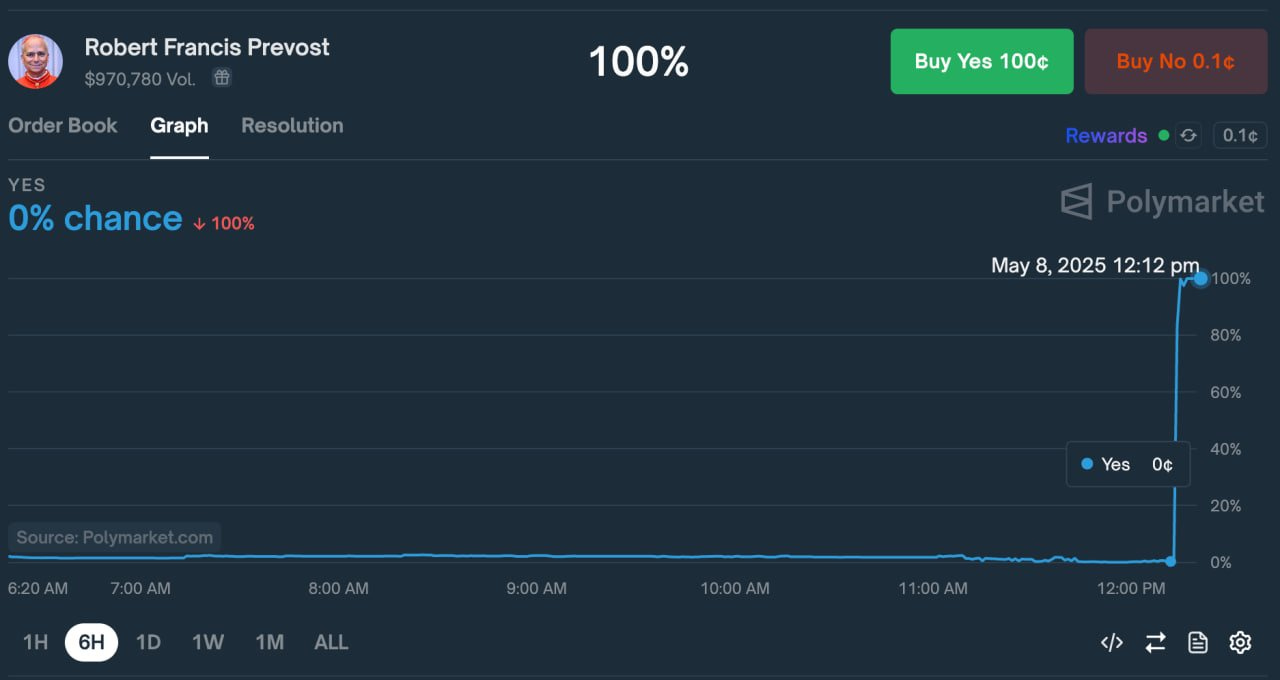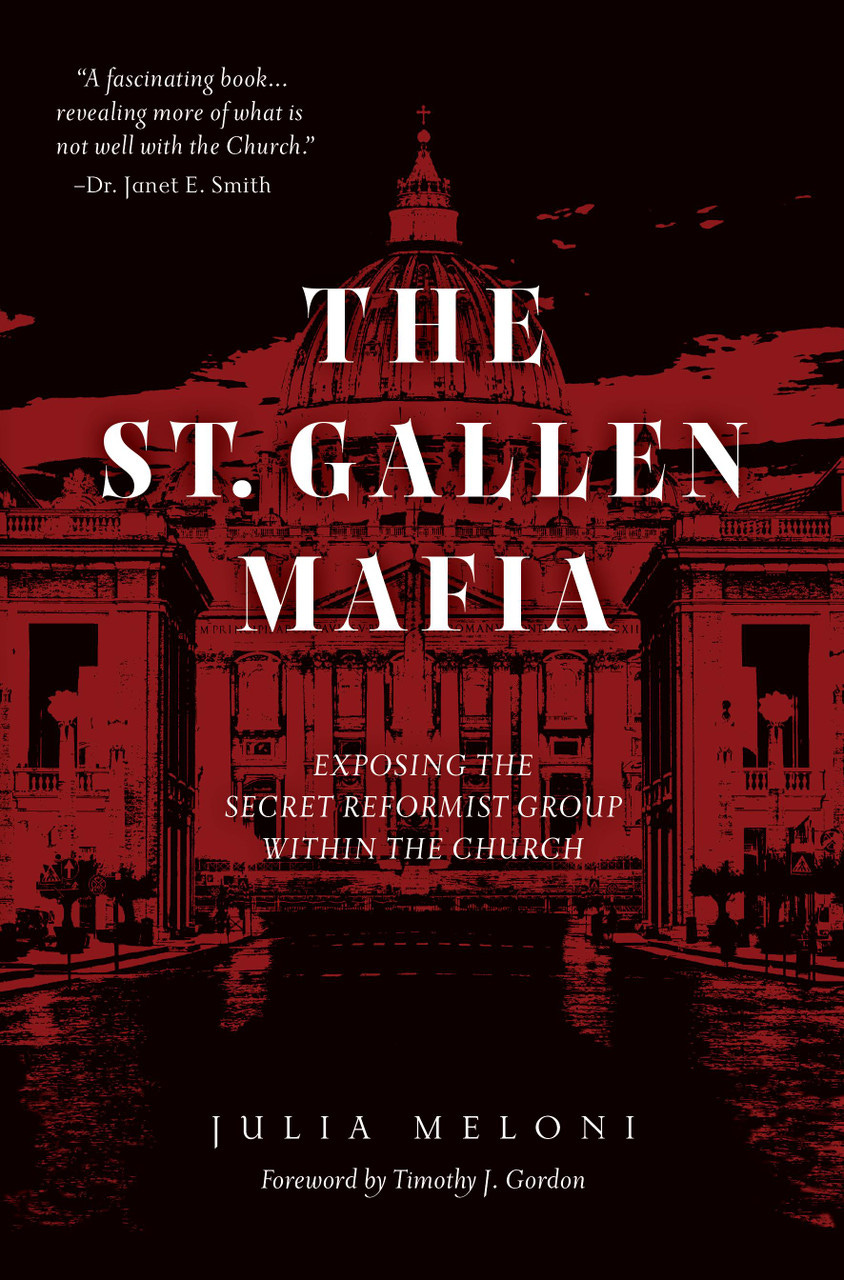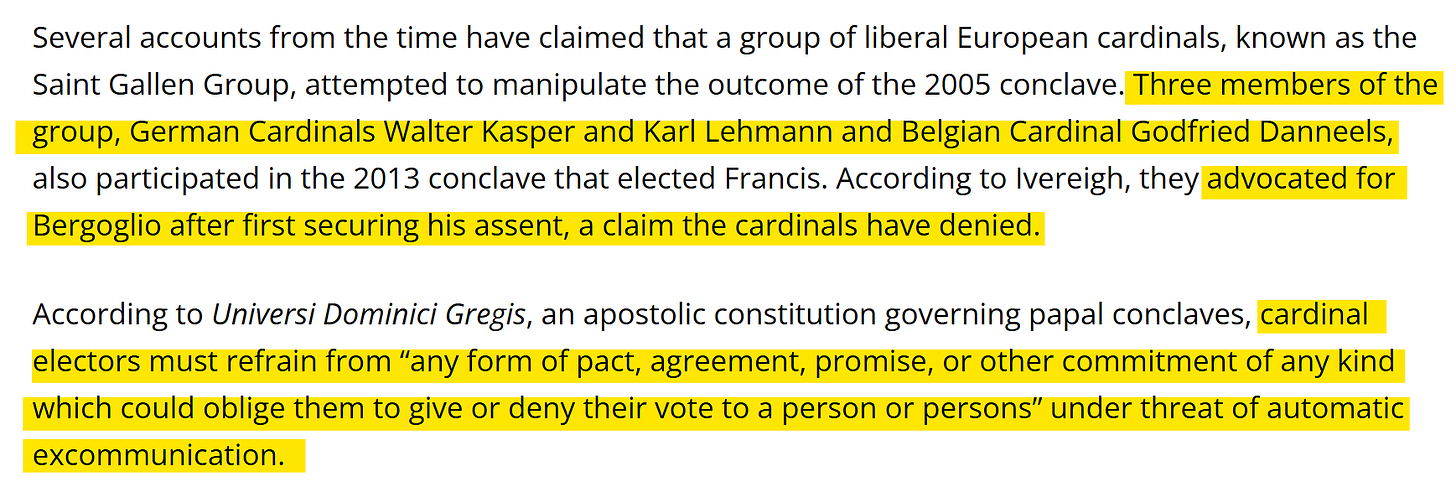Predicting the Pope Three Days Early
The inside story (actually quite public story) of how Leo XIV won
Well, you lost your bet.
“Who is that?” you said to yourself as a featureless American prelate took the loggia for the first time—donning garments reminiscent of Benedict XVI. This was unexpected. Or was it?
There’s a way you could have known. In fact, you could have known who the pope was going to be three days early.
If not earlier.
When it comes to Hollywood depictions of Roman Catholic polity, I’ve always maintained that the real thing is far more interesting. Conclave 2025 is proof. What you’re about to read scratches only the surface, but it is the heart of the story.
The all but irrelevant New York Times was pumping the name Robert Francis Prevost six days ago. It was lamenting his purportedly conservative stances while graciously throwing in his misfeasance as a church leader in dealing with clergy sex abuse on his watch.
But if you were an avid reader of InfoVaticana, a Spanish publication covering the Roman Catholic Church, you would have gotten an early spoonful of papal potentialities back in April. A war was going on under your nose.
Cardinal Prevost? Who’s that? Well, the article describes full-blown campaigning in Rome for Prevost since other, more outwardly leftist cardinals had become toxic, either due to their ties to Vatican Bank scandals or their karaoke singing.
No one took heed.
What conclave bettors still don’t get is how centralized and clique-controlled the college of cardinals has become. One clique reigns supreme, and they are all tightly connected and carry highly public baggage. Prevost himself carries as much baggage as the long lost frontrunners do—Parolin and Tagle—but Prevost benefited by being lesser known.
Trad hopes for African Cardinal Sarah and newcomer Pizzaballa (yes, his name is Pizzaballa) were never in the cards, and long-time pundits should have known that. These men, who represent the substance of conservatism are persona non grata in the clique. Those shamelessly whipping votes needed only the appearance of conservatism. Substance was antithetical to their century-long efforts, but appearance would appease the grumbling faithful.
Thus, Prevost.
InfoVaticana made it a point, early and loudly, to show how Prevost—who became a cardinal less than two years ago—was unfit for the role of supreme Papa.
What separated Prevost from the pack was that he was always able to keep certain allegations and victims one step removed from him. Accusations of covering up abuse, hush money being paid out, close associates shutting down priests attempting to serve as defense counsel for victims—Prevost has consistently sidestepped disaster. Sort of…
FULL REPORT ON PREVOST’S RESPONSIBILITY IN SEX SCANDALS (IN SPANISH) HERE
Then, three days ago, the coming election of Prevost to the papacy was all but confirmed via a chance encounter with some of Prevost’s staunch and highly influential supporters milling about in Rome. The story was written by InfoVaticana’s Jaime Gurpegui, a nom de plume that has been speculatively linked to Jaime Mercant Simó, a priest in Mallorca. The identity of Gurpegui, however, remains a mystery.
The writer describes bumping into social media/LGBT superstar Jesuit priest Fr. James Martin, who promptly turned away and refused to interact when he learned of the reporter’s affiliation. Alongside Martin was Pope Francis’ biographer Austen Ivereigh, who infamously retracted material from his first edition of The Great Reformer, in which he detailed that Francis agreed for a select group of cardinals to campaign on his behalf in the 2013 conclave — an incredibly serious misstep that, if true, could be grounds for excommunication latae sententiae.
In the InfoVaticana story, Gurpegui writes:
[translated from Spanish]
Austin Ivereigh, for his part, did speak to us… although perhaps he would have preferred not to. Visibly annoyed—and increasingly so as the conversation progressed—he stood up, approached us, and vehemently reproached us for the “campaign” we, according to him, were waging against Cardinal Robert Prevost. “The campaign you’re waging against Prevost is very interesting,” he said, his tone a mixture of anger and frustration.
When we replied, "No, not against Prevost; against the culture of cover-up in the Church, which you're now in favor of?" the discomfort was palpable. Nervous, Ivereigh mentioned a Sodalitium as the supposed source of the information, and when we explained that there are many cases, all documented, he insisted, ironically, that InfoVaticana "always has more," referring to the documents we've been publishing on the case. His reaction left no room for doubt: Prevost was their man, the candidate on whom they had pinned all their hopes.
If you had been paying attention, a war was being waged in Rome, and if you knew how powerful a select few really are in the upper echelons of the church, you could have seen the name Prevost itself rising out of the white smoke.
What does Prevost — now Pope Leo XIV — mean for Catholics? For Trads, it is nothing short of cataclysmic. Many will not admit this out of fidelity, others simply do not know it yet since Francis amnesia has already set in, and many more will be lulled by Prevost’s traditional vestments and reports of his personal participation in the Latin Mass. Don’t be fooled—he is a construct of a small clique. Controversy and Francis-like doctrinal hedging are Prevost’s inheritance, to say nothing of his own serious baggage.
By the way, the election of Prevost is a crude parody of Jude Law’s character in The Young Pope, who is also the first American to become pope, who throws everyone off their game, and who then turns out to be a conservative, even saintly figure. Prevost may be just the opposite.
For everyone else, it’s business as usual. The Catholic Church is decisively moving in the synodal direction, drawing power away from grand councils and canons and ecclesial authorities for purposes unknown but with inclinations veering ever left.
For Protestants, some of this is fine. We all remember when Francis said that on matters of justification (one of the central controversies of the Reformation) Martin Luther did not err. That is an astonishing statement.
Even conservative 93-year-old Cardinal Zen, who’s had it rough under Chinese jurisdiction and traveled to Rome to warn his brothers of the synodal way in the days leading up to the conclave, nevertheless casually mentioned that Pope Francis had gone up to heaven. If you know traditional Catholic theology, that’s actually quite presumptive. But we Protestants agree with Rabbi Saul, the faithful Pharisee who says in the New Testament:
“…if you confess with your mouth that Jesus is Lord and believe in your heart that God raised him from the dead, you will be saved.”
That is, amen. More amens may come if Prevost, Order of Saint Augustine, doubles down on his Augustinian roots in this regard.
Liberalizing tendencies in the Roman Catholic Church have actually improved the ecumenical situation a great deal. If Prevost continues that trend, I’m here for (some of) it. Let’s just make sure that progress in this direction is not made at the expense of victims of sexual abuse. What lurks in darkness must come to light.
Conclaves are now highly canvassed affairs with serious power thrown around. It is unsettling that scandals—too often concealed or “managed”—lurk in the skirts of the church’s highest power brokers, and that is a problem for all Christians who demand integrity among those who name the name of Jesus, especially those who occupy such public offices.
For better or worse, this is the lens to use when examining Catholic ecclesiology. It may even help you predict the next pope.
For Prevost’s brother back in Chicago, however, little prediction was needed. He knew that his brother was a top three finalist “a day or two” after Pope Francis died. Oops. These are the kinds of beans that don’t go back in the bowl.
When asked about the continuity between Francis and Leo XIV, Prevost’s brother said, “I don’t know that there’ll be much difference.”








